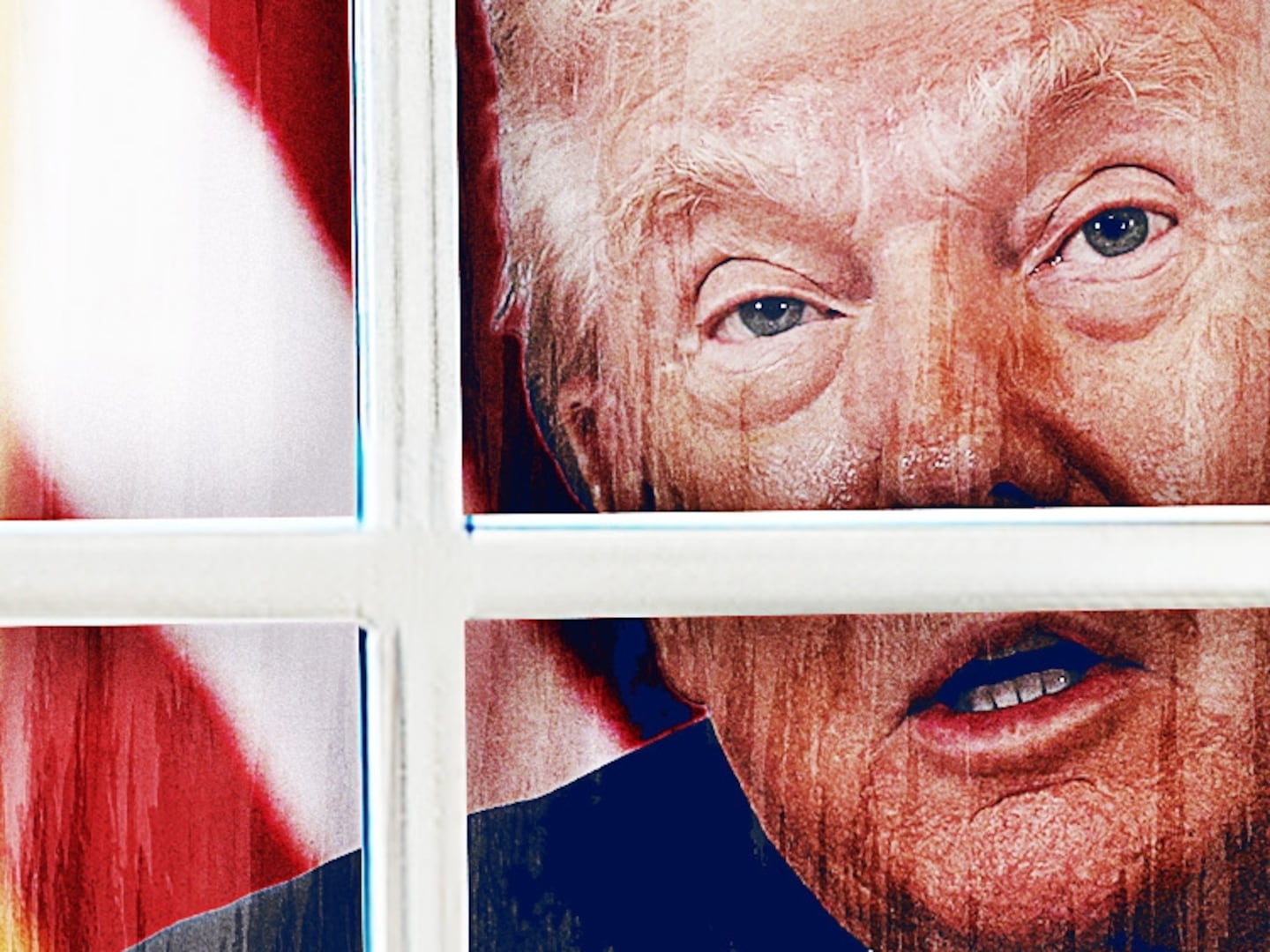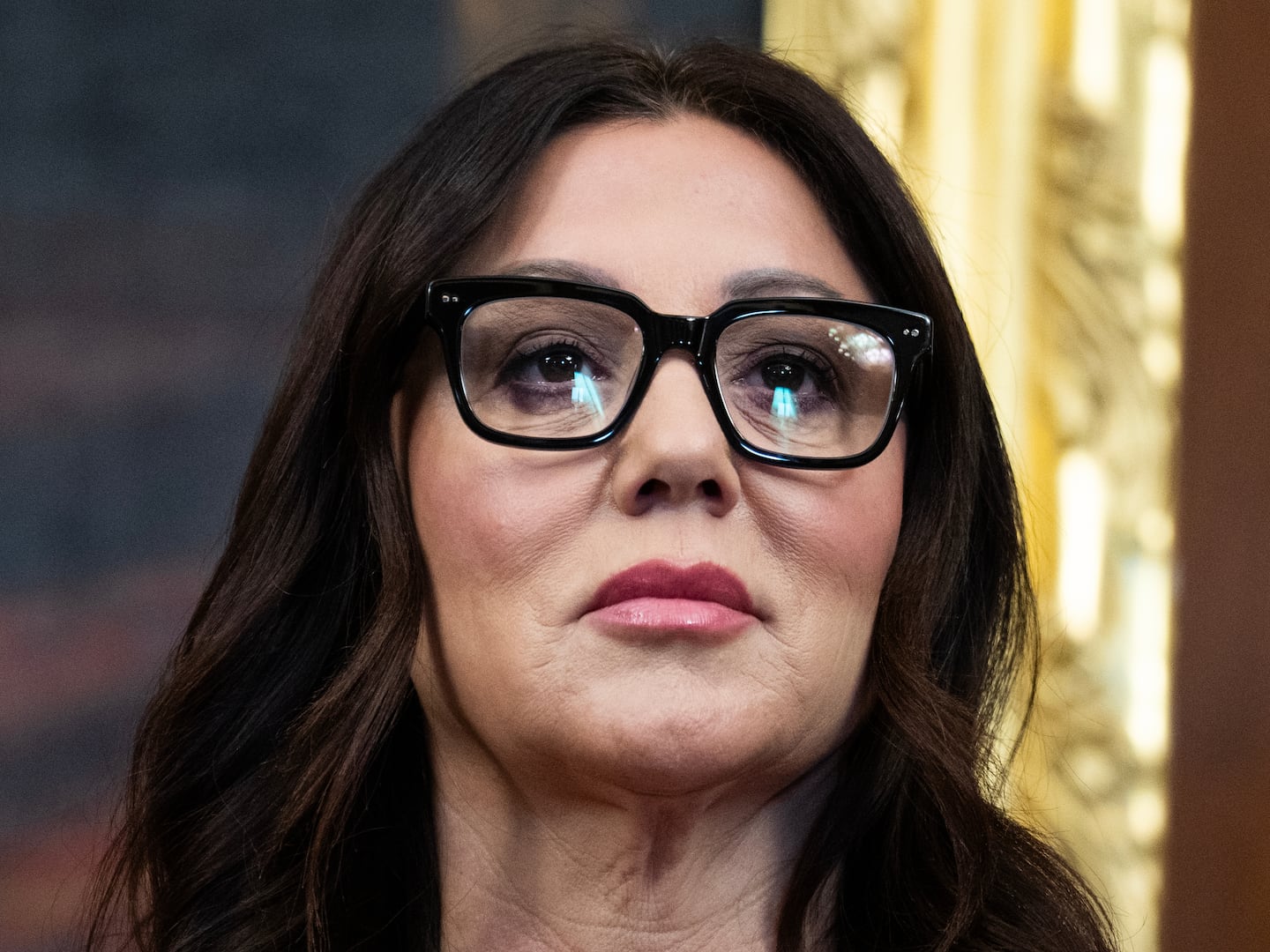Those battling Reagans are at it again.
Ever since Ron Reagan’s revelation, in his new memoir My Father at 100, that America’s 40th president might have had incipient Alzheimer’s disease in the White House, his older brother Michael has been waging jihad against him.
“I haven’t talked to Mike in a long time—I should write him a thank-you note for helping me sell my book,” the younger Reagan tells me.

He’s referring to the recent full-frontal Twitter attack by the 65-year-old adopted son of Ronald Reagan and his first wife, actress Jane Wyman—the latest episode in a long-running soap opera of first-family dysfunction, played out in public.
“My brother seems to want [to] sell out his father to sell books...my father did not suffer from Alzheimers in the 80s,” the elder Reagan tweeted. “Ron, my brother, was an embarrassment to my father when he was alive and today he became an embarrassment to his mother,” he added later on. Still later, he raged: “The issue here is Did our Father have Alzheimers when he was President. He did not.” Then Mike Reagan exhorted his 2,500-odd Twitter followers: “Pray for my brother.”
Ron, who is 52, says he was blissfully ignorant of Mike’s broadsides until he heard about them from Nancy Reagan, his 89-year-old mom (also mother to older sister Patti Davis, who pointedly distances herself from the Reagan legacy by using her mom’s maiden name).
“I didn’t watch any TV over the weekend, so I was behind on all this Mike tweeting stuff,” says Ron, himself a non-tweeter. “So I called to speak to her and she was concerned. ‘Are you all right?’ And I was kinda like, ‘Yeah. Why?’ And she said, ‘Mike just said these awful, mean things.’ ‘What did he say?’ ‘Oh, I don’t know. I’m not even going to tell you.’”
Ron adds: “When I realized what was going on, I called her back and said, ‘They’re going to ask me what you think about the book. I don’t want to put words in your mouth, so you gotta tell me what I should say.’ “
The former first lady’s review, according to her son: “I’ve read it, I loved it, it made me cry, and I’m very proud of you.”
“I only noticed things occasionally that only someone intimately familiar would know. I’ve likened it to watching TV and the picture momentarily goes slightly out of focus and then snaps back.”
Mrs. Reagan, who turns 90 in July, “is actually doing pretty well,” Ron reports. “She’s sharp as a tack. She does have a little trouble walking now, and her eyesight isn’t so good, and so she’s resigned herself to the walker—and she’s getting pretty good with that.”
As for Patti, 58, a sometime actress and novelist, and the so-called black sheep of the Reagan brood, “I have not spoken to Patti lately,” Ron says. “I think she’s trying to write a novel or something, but I’m not quite sure. She doesn’t seem to be of a mind to speak to me. You know, I don’t like to have these intrafamilial squabbles. I don’t think it’s such a great idea—it’s kind of unseemly.” (Maureen Reagan, Jane Wyman and Ronald Reagan’s biological daughter, who occasionally served as conciliator in the family feuds, died of cancer in 2001.)
Ron adds: “People talk about this feud between Mike and me. It’s kind of a one-sided feud. I have no interest in it. He’s the one that started it, and he seems to be keeping it going.” (Indeed, on Thursday, after Ron had clarified but didn’t back away from what he wrote in his book about Alzheimer’s, Mike addressed the controversy again, tweeting: “I accept my brothers explantion for his getting the facts wrong and appologize for my harshness.” Lamentably, Mike is diverting attention from his own book, The New Reagan Revolution, a co-authored volume that Ron witheringly describes as “something about how my father’s principles would solve all the world’s problems.”)
Predictably, Mike’s reaction to Ron’s speculation about President Reagan—who announced his diagnosis in a heartbreaking open letter in 1994 and died 10 years later, but would have turned 100 on Feb. 6—is the news nugget that has overwhelmed Ron’s book tour. Given President Reagan’s enduring status as the deity at the center of the Republican cosmos, everyone from pundit/acolyte George Will to media doyenne Barbara Walters has felt compelled to enter the theological debate.
“Ron Reagan is saying the silliest things about Reagan and Alzheimer’s,” Will told my colleague Samuel P. Jacobs this week. “My wife [Mari Maseng Will] was Reagan’s communications director. She saw an awful lot more of President Reagan during his second term than he did. She thinks it’s rubbish, and so do I.”
Weighing in on The View, Walters said: “I probably saw more of President Reagan in those years than either of his sons. He was not really close to them. And I did interview after interview. I didn’t see any signs of dementia or Alzheimer’s or whatever until after he left office.”
Ron—whose book makes abundantly clear that he was close to, if occasionally at odds with, his sometimes distant father—mildly objects to what he calls Walters’ “presumption.”
But he responds: “I’m gratified to hear people saying that they didn’t see any signs of dementia when he was in office, too. I didn’t see that either. I only noticed things occasionally that only someone intimately familiar would know. I’ve likened it to watching TV and the picture momentarily goes slightly out of focus and then snaps back. You did wonder what that was, but I can’t say those were signs of Alzheimer’s. He was a man in his mid-70s. You’re slowing down in various ways. He was losing his hearing. He’d been shot and nearly killed. That’ll stop you a little bit.”
He points out that the president himself wrote in his private diary, while still in office, about his disquiet over his inability to recall the names of long-familiar California canyons as he flew over them. “I don’t pretend to say he was thinking about Alzheimer’s,” Ron says. “I don’t know what he was thinking. But that’s what he wrote in his journal.”

Ironically, the flap accounts for only a few paragraphs in a 228-page narrative that is, by turns, informative, moving, insightful, and painfully honest—and, it has to be said, surprisingly well-written. “I didn’t think I knew that many words,” Ron jokes. Among the memorable scenes: an account of how Ron and his dad, then governor of California, almost came to blows over his impersonation of a rebellious teenager; and the terrible day in March 1981, two months into Reagan’s first term, that the deranged John Hinckley attempted to impress Jodie Foster.
When I suggest that his near-fisticuffs with his father might have been his bid for the intimacy their relationship otherwise lacked, Ron protests, “That might be a little too Freudian. I’m not sure about that.”
Growing up Reagan “is a mixed bag, I suppose,” Ron says. “But I’ve never really known anything else. My father was a public figure all my life, and so the presidency was an extension of that. I guess you get used to it, though you can stand back occasionally and think, ‘Boy, this is really weird!’ “
Did the advantages outweigh the disadvantages? Being a fly on the wall at his father’s Geneva summit with Mikhail Gorbachev “would certainly be on the advantage side—those experiences are priceless,” says Ron, who determinedly carved out an independent identity from an early age, announcing that he was an atheist at 12 years old, dropping out of Yale to become a professional dancer with the Joffrey Ballet, eloping with Doria, a clinical psychologist and his wife of 30 years, and later flaunting his left-leaning politics on radio and television.
“Having your father shot on national television—that would be on the downside,” Ron notes dryly. “But that’s nothing new in American history. We’re a violent country. We can point fingers at Sarah Palin—and that can be fun—but it’s a deeper, broader problem. This is an America that doesn’t take mental health seriously, and is awash in guns and obsessed with violence.”
Ron, who endorsed Barack Obama for president in 2008 and over the past two years has shared the disappointment of many liberals, says “I feel a lot better now than I did three months ago, right after the tax-cut compromise. I guess I should keep in mind that my own father did a lot of compromising himself to get what he wanted. And Obama seems to have found his stride. I thought his speech in Tucson was powerful—and the contrast to Sarah Palin couldn’t have been more stark. No surprise there. I think she’s out of the running at this point.”
What’s next for Ron Reagan? He might return to radio—something he hasn’t done since last year when Air America (which carried his Seattle-based program) went out of business—and he’d like to try his hand at writing another book, preferably on a non-Reagan topic.
“I would definitely not want to do another family memoir,” he says with a laugh. “I suppose I can do My Brother at 65. It would be a shorter book.”
Lloyd Grove is editor at large for The Daily Beast. He is also a frequent contributor to New York magazine and was a contributing editor for Condé Nast Portfolio. He wrote a gossip column for the New York Daily News from 2003 to 2006. Prior to that, he wrote the Reliable Source column for the Washington Post, where he spent 23 years covering politics, the media, and other subjects.






